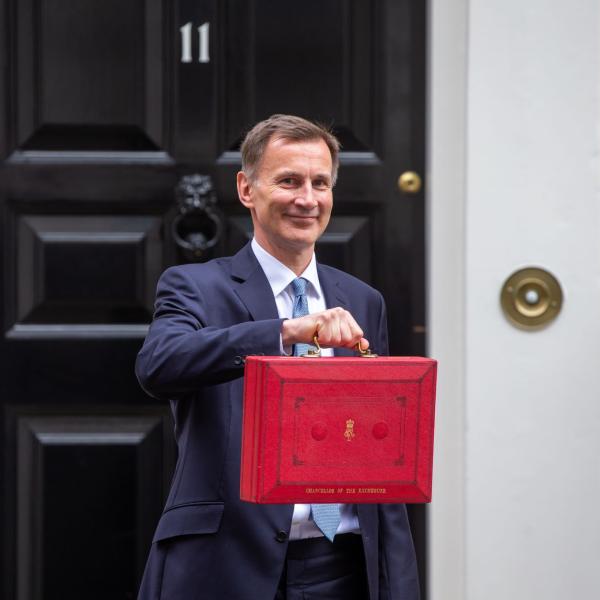Collection

IFS analysis relating to the autumn Budget 2017. Researchers presented their analysis of the Budget at a briefing on Thursday 23 November.
Slides from the event
Consequences of the economic downgrade by Thomas Pope
Public spending, delaying the squeeze by Carl Emmerson
Housing measures by Robert Joyce
Taxes and benefits by Tom Waters
Presentations from the event
Related content
If we’re serious about helping young buyers, hard choices lie ahead
IFS Director Paul Johnson writes in The Times.
27 November 2017
£600 maths premium ≠ more maths A-levels
The government’s policy to pay schools to get more pupils studying maths is misguided, argues Luke Sibieta – why not raise sixth-form funding instead?
27 November 2017
It may just sound like a statistic, but productivity growth matters for all of us
We should all hope that these new forecasts are unduly pessimistic
24 November 2017
Budget 2017: Brace yourselves for more tough times
IFS Director Paul Johnson writes in The Times.
23 November 2017
If these forecasts prove correct we will be worse off and government debt will remain higher for longer
Carl Emmerson reacts to the Autumn 2017 Budget.
22 November 2017
Where is Brexit in the budget numbers?
A blog piece for UK in a Changing Europe.
21 November 2017
The chancellor is trapped in a budget bind and there’s no easy way out
A deteriorating economic outlook and public spending pressures put the Chancellor in a Budget bind
30 October 2017
Two budgets this year add up to one big problem for Hammond
What does this year have in common with 1979, 1993, 2010 and 2015? It is a year of two budgets. And now we know that this year’s second budget will take place on November 22. And that’s nice to know. The timing of budgets is rather more orderly and predictable than was the case under some previous regimes.
18 September 2017
Six key charts ahead of the Chancellor's Autumn Budget
7 key charts ahead of the Chancellor's Autumn Budget
17 November 2017
Autumn 2017 Budget: options for easing the squeeze
The key backdrop to all fiscal events in the UK since the financial crisis has been the weak performance of the economy. At the time of the March 2017 Budget, national income per adult was around 15% lower than it would have been had output per adult instead grown by 2% a year (close to the post-war average) since the start of 2008. Despite this historically poor performance, weak growth was forecast to continue. The March forecast implied that, by 2022, national income per capita would be 18% lower than it would have been if it had grown at 2% per year since 2008. That is astonishing.
30 October 2017
Where next for tax and spend?
Following seven years of spending cuts following the financial crisis and associated record deficit, there is a growing call for the government to “end austerity”. Yet current plans imply more spending cuts as the government looks to reduce the deficit further. This observation – and an associated joint event with the Institute for Government – reflects on what ending austerity might mean in the context of the scale and shape of the planned fiscal tightening.
12 July 2017
Collection details
- Publisher
- IFS
More from IFS
Understand this issue

Empty defence spending promises are a shot in the dark
29 April 2024

Public investment: what you need to know
25 April 2024

The £600 billion problem awaiting the next government
25 April 2024
Policy analysis

Spring Budget 2024
6 March 2024

Scottish Budget 2024–25
22 February 2024

Autumn Statement 2023
22 November 2023
Academic research

6th World Bank/IFS/ODI Public Finance Conference | Driving Progress: Public Finance and Structural Transformation

Inaugural IFS postdoc workshop
